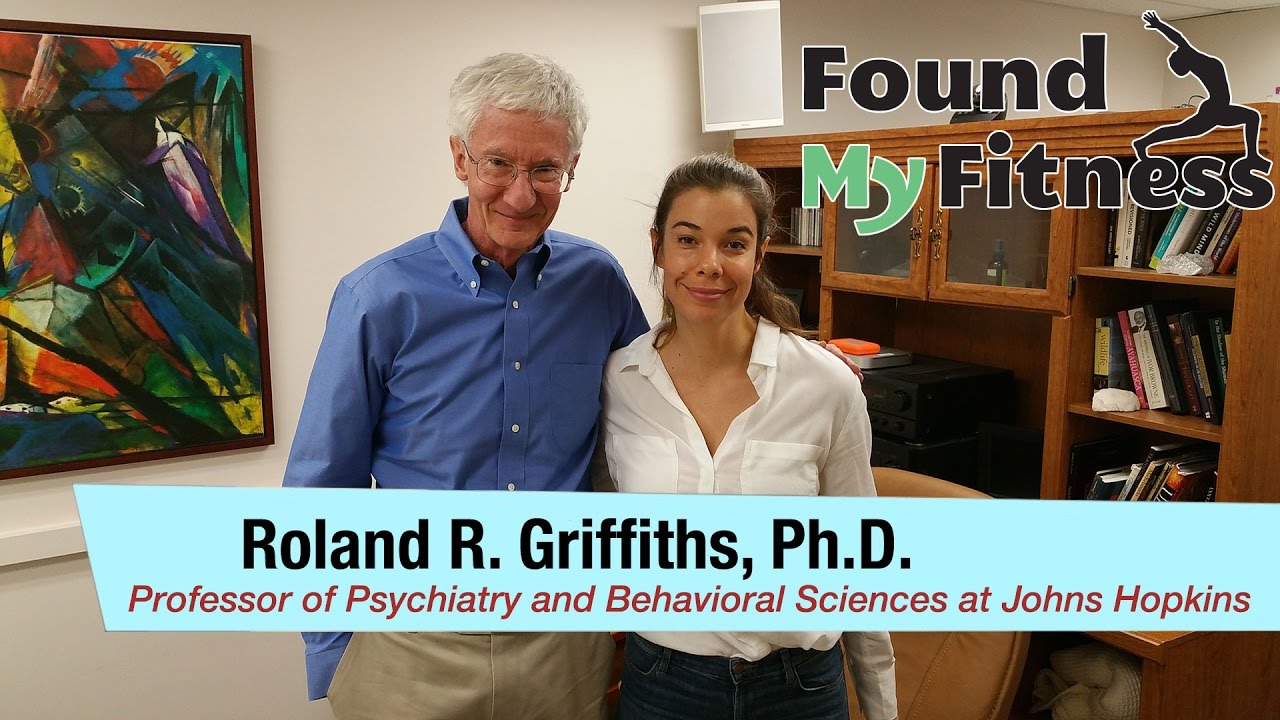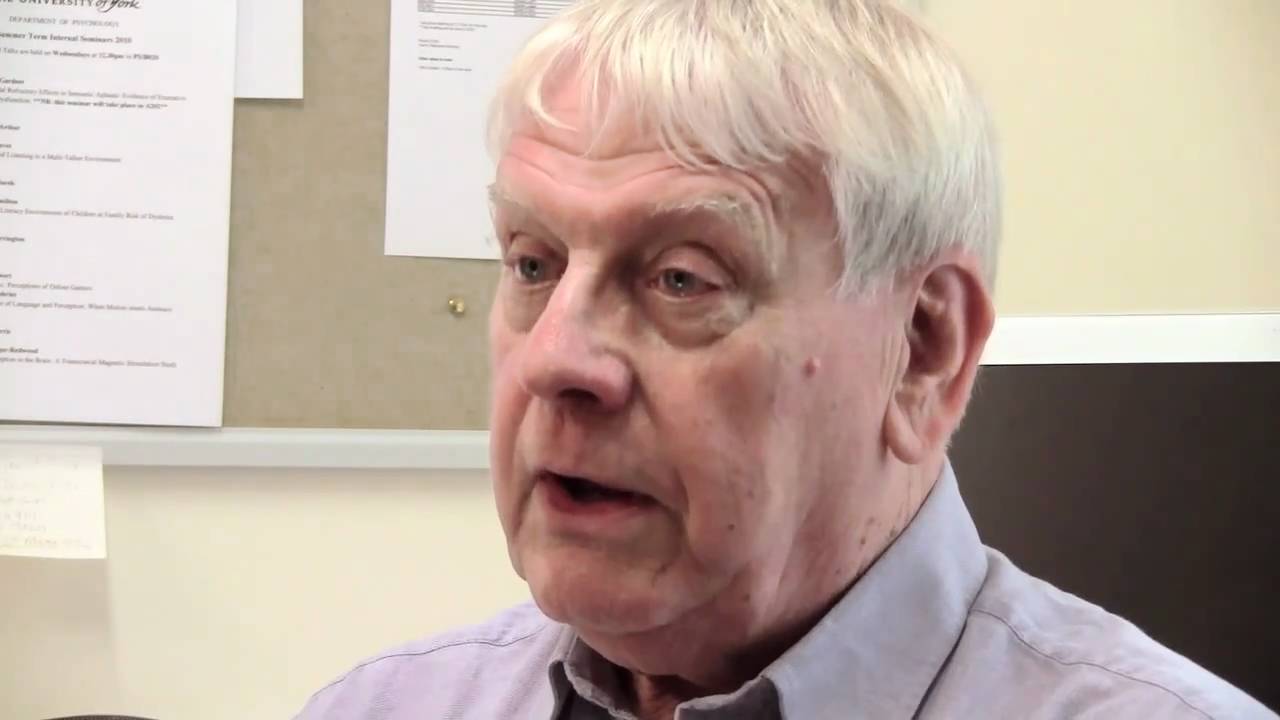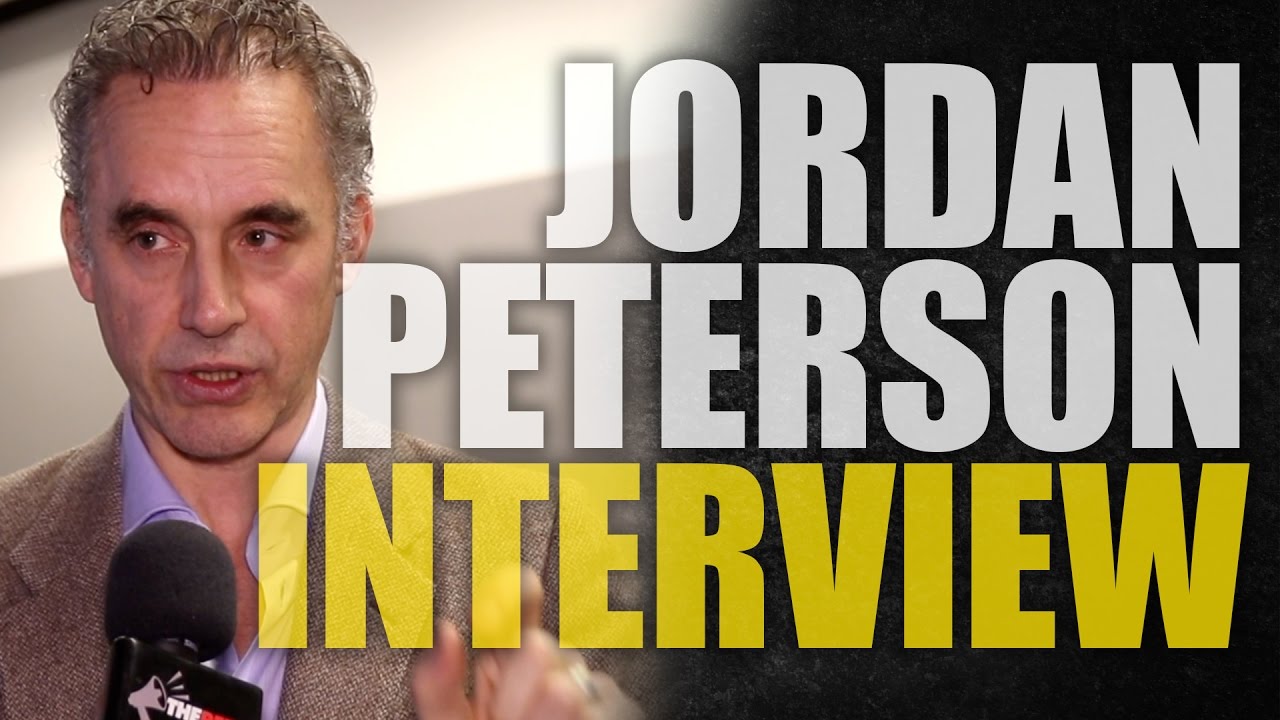Dr. Roland R. Griffiths is a clinical pharmacologist at Johns Hopkins. Dr. Griffiths has been researching mood-altering compounds for over 40 years, has published over 360 times, and started the psilocybin research program at Johns Hopkins nearly 2 decades ago.
In this 1-hour and 15-minute podcast, we discuss…
• 00:01:03 – the broader story of Dr. Griffiths 40 years of mood-altering drug research, including what got him started and how taking up a meditation practice ultimately influenced the eventual focuses of his research.
• 00:02:22 – the effect psilocybin has had in clinical trials in eliciting so-called mystical experiences that can act as a long-term catalyst for meaningful spiritual change and is amenable to being reproduced and clinically studied in a prospective manner.
• 00:03:45 – what distinguishes psilocybin from other drugs, particularly when reflecting backward on the experience months afterward.
• 00:05:11 – the process by which Dr. Griffiths and his team create an appropriate “setting” and facilitate feelings of safety for those participating in his trials.
• 00:06:42 – the elusive fundamental nature of a classical psychedelic experience whereby people often simultaneously describe the experience as ineffable (indescribable) but yet also often assign it a truth value that may even exceed that of everyday consensus reality.
• 00:07:36 – a description of the core features of a classical mystical experience that overlap with those found in a mystical experience induced by psilocybin.
• 00:08:58 – the qualities of the experience that Dr. Griffiths believes to most underlie the “reorganizational” potential it can have.
• 00:10:55 – the interesting potential areas for scientific exploration that the reproducibility of the psilocybin experience makes the substance amenable to.
• 00:11:25 – the promise psilocybin has shown as an effective therapeutic for anxiety and depression in patients with life-threatening cancer and also treatment-resistant depression in otherwise healthy patients (00:18:46).
• 00:13:04 – the lack of rigor in the very early trials on these compounds and the way in which cultural stigma surrounding psychedelic drugs ultimately played a role in impeding real, substantive clinical research for decades afterward.
• 00:16:31 – the long-term resilience of the antidepressant and anxiolytic effect, lasting six months and possibly even longer.
• 00:21:01 – the effect psilocybin has demonstrated in animal studies to increase hippocampal neurogenesis and enhance extinction of trace fear conditioning.
• 00:23:07 – the somewhat unintuitive neurobiological mechanism that may tie together some of the antidepressant properties of both psilocybin and ketamine, an anesthetic currently being studied as a rapid-onset antidepressant.
• 00:25:16 – whether or not the mystical subjective experiences are necessary for drugs like psilocybin to exert their antidepressant or anxiolytic effects.
• 00:26:43 – what the default mode network is and what its pattern of activity is in depression, long-term meditators, and after the acute use of psilocybin.
• 00:32:16 – the hard problem of consciousness.
• 00:37:26 – the challenge of finding the neurological correlates to match the phenomenology of individual’s subjective experiences.
• 00:38:16 – the promise psilocybin has shown in a small trial on smoking cessation where 60% of the treatment group were still abstinent a year afterward and plans Dr. Griffiths has to expand this area of research
• 00:41:10 – the possibility that the “reorganizational nature” of these experiences may open up new avenues as trials continue to try to embed the experience within different therapeutic contexts.
• 00:44:02 – the roadmap to FDA approval for use of psilocybin as a medication, particularly in the context of cancer-associated depression and anxiety.
• 00:45:05 – the risks inherent in taking psilocybin and the frequency of self-reported negative experiences in the general population.
• 00:47:22 – the criteria Dr. Griffiths and his colleagues use when screening for volunteers to participate in his studies involving psilocybin.
• 00:49:21 – the inability for clinicians to predict who is at risk of having challenging experiences defined by fear and anxiety (“bad trip”) and whether or not it is desirable, in terms of achieving a therapeutic outcome, to prevent these types of experiences altogether or not.
• 00:51:43 – the sort of dosages used in the trials.
• 00:54:45 – the clever ways devised by Dr. Griffiths to placebo control trials where expectation itself can affect outcome.
• 00:57:45 – some of the interesting anecdotes gleaned from Dr. Griffiths’ working with long-term meditators participating in the psilocybin trial.
• 01:05:13 – a brief discussion about some of the other psychedelics besides psilocybin, such as salvia divinorum and DMT (at 01:10:24).
• 01:12:08 – the historical indigenous use of psychedelics in various cultures spread throughout the world.
FoundMyFitness
Source




Thank you Dr Patrick and Dr Griffiths!! Excellent discussion!!
Two of my favorite doctors in one interview.
tim cook started doing. drugs, finally apple will rise again
Maybe my calculations are off but Roland explains that a high dose is 30mg psilocybin/70kg body weight which equates to 0.03 grams psilocybin /154.324 lbs body weight. I feel this dosage is a "microdose" to most individuals who use psilocybin. Maybe my calculations are wrong, or the potency or concentration of the psilocybin varies from my understanding, but I find it hard to believe that people were reaching "mystical" experiences at this dosage, especially when Roland explains that this was the highest dosage they used during research. Any thoughts?
I can not believe I just found this. Awesome sauce.
Dr Patrick's focus on glutamate pathway activation as the mechanism of psychedelic therapy is scientism. It doesn't acknowledge that those undergoing psychedelic therapy will experience a very different reality – one that invokes awe and wonder, and makes nonsense of the petty concerns of our everyday lives. If that's the same thing as glutamate pathway activation, well… bite me.
I have never heard of this girl before. I am 15 minutes in and she looks bored. She does not participate in the conversation. He is saying some really profound stuff and she is blank. Seems like she doesn't get it.
Why people have so much dificulty with consciousness, today we have the science behind it. The Proof of though, intention= consciousness alter matter as we are the science. Many studies have shown subtle effect of the healers upon hydrogen bonding and infrared absorption of water. None of these scientific studies can compare with the beauty and clear message shown by Dr. Emoto’s elegant work. The impact of though and beauty has never been demonstrated so well….Half earth is water, our body is three-quarters water. Water represents the interface between the 4th dimension in which we live and the 5th dimension sphere of our soul….This is all about consciousness!
In the academic world 90% or reality is missing so is very difficult to undertand the beauty of nature, and what is spirit mind body and the reality of the soul.
"If you want to understand the universe, look into energy, frequency and vibration" N.Tesla
My experiences with psilocybin helped me with my anger issues. I’m still high energy but not when it comes to situations that would blow a short fuse. I don’t hold grudges anymore either. Life is too short to be angry.
Wow. You are a badass! I can't believe you actually got this guy!
I want so badly to take part in a study, but I don’t qualify for any current ones.
Profoundly educational. This is one of your best podcasts among some absolutely stunning work on deep topics.
I particularly love the way you bring definitions in for the more salient and complex language. By eliminating the pause and look up for many of the morphological and scientific reference terms, you drastically increase engagement. Thank you thank you Rhonda 🙂
We don't have religion anymore, but we'll still have shrooms
I’m certainly not a neuro biologist , but regarding “where to look“ in the brain for this location of mystical experiences- somewhere in the right hemisphere based on Dr. Jill Bolte Taylor’s experience of having a stroke on the left side of her brain. She is describes that when her left brain was shut down, her right brain took over and she experienced a non-dualism, peace and love and connection. Check out her Ted talk.
Need to see Dolores cannon about her special deep hypnotherapy technique developed through 40 years practice, really deep and enlightening, don t think psilocybin needed…connect to the self is a very strong experience…awakening…being aware of being aware the collapse of body bind…AS St FRancis told to its disciple, where you are looking for is what you are looking for, Rupert spira has a good approach to…so many of them out there teaching different ways to reconnect to reality….ultimate reality….
Very good insight.
However, I do think that the interviewer is immature and to some degree uninformed to be able to handle such an interaction.
If you really enjoyed this like I did, check out the videos on the MAPS.org channel. Fascinating stuff. Thanks Dr. Rhonda
It’s obvious Dr. Griffiths does not have pets! Love that couch!
The Youtube gods have smiled upon us. Thank you for all you do Dr. Patrick.
I love this! I want to know more! Rhonda, do you know anything about fibromyalgia, and could you interview any specialist about it? Thank you.
Appreciate the quality editing. Havent seen a podcast like it
I wish my doctor would listen this well
Thank You VERY MUCH For Making This Presentation Available……AND ESPECIALLY The Explanations/Definitions Provided!!! With Respect To "Fear Of Dying", I Viewed The Attached Presentation a couple + days ago and thought to send it to You…..https://www.youtube.com/watch?v=mMYhgTgE6MU&index=33&list=PLsegG2Vfn0RTrh7g-2Eenr-sdi-8sxzk1 Wishing You MUCH SUCCESS, Both Personally and Professionally!!!! Thank You Again, VERY MUCH!!!! From Istanbul Turkey, Daniel Patrick Young.
Outstanding video thanks to both of you. I am grateful ?
Links to articles mentioned: https://www.pnas.org/content/109/6/2138 , https://www.ncbi.nlm.nih.gov/pmc/articles/PMC3144981/ , https://www.ncbi.nlm.nih.gov/pmc/articles/PMC4529365/ , https://www.ncbi.nlm.nih.gov/pubmed/24485481 , https://www.ncbi.nlm.nih.gov/pubmed/21035949
A lot of work was put inside that video.
Thank you for that. You're helping.
I'm kind of tired of this. There's all this positive shit about drugs what about when someone loses their shit trying these regardless of studies. That does happen. It's too variable.
Wonder why he didnt want to talk about his meditation.